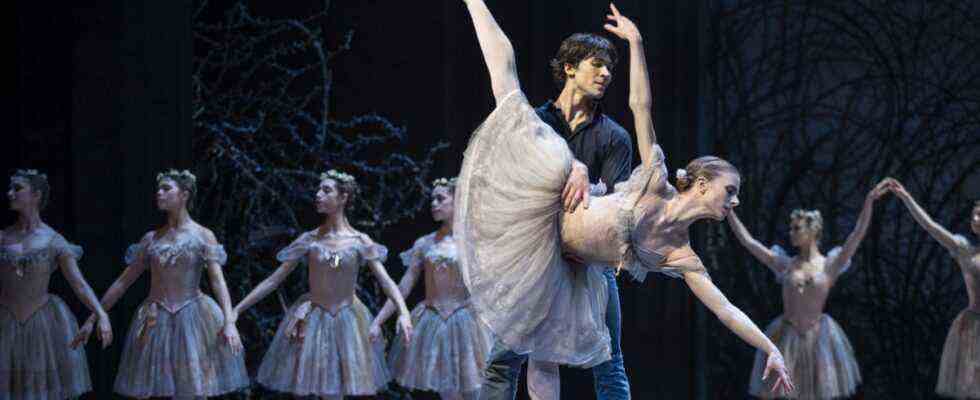It is nothing less than a sensation what Hamburg ballet director John Neumeier announced on the occasion of the general overhaul of his “Sleeping Beauty”: After fifty years at the head of the company, the director wants to say goodbye in 2023. This is the end of the longest reign in ballet history – and a brilliant chapter of success. Because the American, whose career began as a dancer in Stuttgart, has made the cool Hanseatic people into a crowd of fans who are crazy about and enthusiastic about dancing. Most of Neumeier’s repertoire, which has grown well beyond the hundred mark, was premiered in the Dammtor Opera. The eighty-two-year-old has created masterpieces elsewhere, including the incomparable “Lady of the Camellias” and the “Nutcracker”. But the liaison between him and the Hamburg Ballet remained untroubled: dancers and artistic director are sworn to one another, the offspring come from their own school. And if the space in the stalls, first row on the far right, remains unoccupied for once, the boss is out on business. Or sick.
Neumeier’s attention is evidently balm for the soul of his dancers. The completely revamped “Sleeping Beauty”, released at the end of 2021, shines even in a sold out subscription performance: danced with dedication right into the supporting roles, opulently decorated by Jürgen Rose. Apart from a few false colors such as the thorny earthworm, which replaces the evil fairy and later turns into a malicious Arab prince, this “Sleeping Beauty” is colored psychologically convincing. But what will happen to the Neumeier fund when the Maestro leaves in 2023?
Shines: the completely renovated “Sleeping Beauty” in Hamburg.
(Photo: Kiran West)
Hamburg’s Senator for Culture Carsten Brosda, who is also President of the German Stage Association, now has to deal with this question. Brosda has to resolve the most important personalities of the German dance scene in the long run: because his decision will in turn influence Neumeier’s decision which role Hamburg should play in shaping its future legacy. With a view to the public, to art and the public, a double-edged task: the Hamburg company must not become a Neumeier museum, but its DNA must remain connected to his work. The example of the Stuttgart Ballet is the best blueprint: Since 1973, since the sudden death of the founder John Cranko, his creations have not only been preserved but also distributed internationally. It was above all Cranko’s ballerina Marcia Haydée who set the course for the future and the dynamic development of the troupe. In Hamburg, Neumeier’s long-time muse Gigi Hyatt, currently director of his ballet academy, could achieve something similar – for example as curator of Neumeier’s oeuvre as part of a dual leadership.
Because two things are different in Hamburg than in Stuttgart: On the one hand, there is a lack of prominent young choreographers, and on the other, Neumeier has almost never given the company away. This exclusive coinage becomes obsolete with his resignation. After that, new choreographic manuscripts must be seen in Hamburg and creations must be created so that the ballet culture does not suffocate on itself. As things stand, only a second manager can provide this fresh air supply – be it a networker like Bettina Wagner-Bergelt, ex-vice director of the Bavarian State Ballet and currently in charge of the Tanztheater Wuppertal, be it an all-rounder like the choreographer Christopher Wheeldon. Perhaps no coincidence that the Briton will soon be rehearsing his Shakespeare adaptation “The Winter’s Tale” at the Hamburg Ballet. Wheeldon’s aesthetic is in line with Neumeier’s line, but would he swap his adopted home New York for Hamburg?
Even before the personnel issues, Carsten Brosda had to clarify the whereabouts and financing of the fabulous art collection that Hamburg’s honorary citizen John Neumeier collected over decades: books, pictures, letters and sculptures, all of them cultural and historical testimonies of great importance. A treasure that the Hanseatic city should secure – in its own interest.

